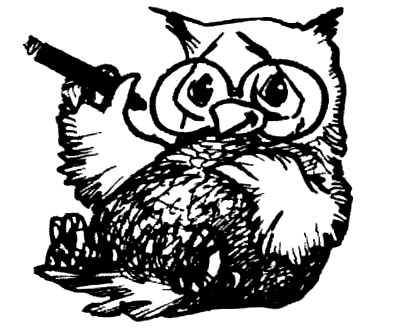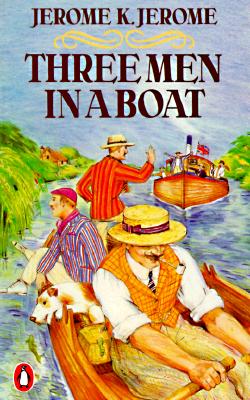The “George and Dragon†at Wargrave boasts a sign, painted on the one side by Leslie, R.A., and on the other by Hodgson of that ilk. Leslie has depicted the fight; Hodgson has imagined the scene, “After the Fightâ€â€”George, the work done, enjoying his pint of beer.
Day, the author of Sandford and Merton, lived and—more credit to the place still—was killed at Wargrave. In the church is a memorial to Mrs. Sarah Hill, who bequeathed 1 pound annually, to be divided at Easter, between two boys and two girls who “have never been undutiful to their parents; who have never been known to swear or to tell untruths, to steal, or to break windows.â€Â Fancy giving up all that for five shillings a year! It is not worth it.
It is rumoured in the town that once, many years ago, a boy appeared who really never had done these things—or at all events, which was all that was required or could be expected, had never been known to do them—and thus won the crown of glory. He was exhibited for three weeks afterwards in the Town Hall, under a glass case.
What has become of the money since no one knows. They say it is always handed over to the nearest wax-works show.
Shiplake is a pretty village, but it cannot be seen from the river, being upon the hill. Tennyson was married in Shiplake Church.
The river up to Sonning winds in and out through many islands, and is very placid, hushed, and lonely. Few folk, except at twilight, a pair or two of rustic lovers, walk along its banks. ’Arry and Lord Fitznoodle have been left behind at Henley, and dismal, dirty Reading is not yet reached. It is a part of the river in which to dream of bygone days, and vanished forms and faces, and things that might have been, but are not, confound them.
We got out at Sonning, and went for a walk round the village. It is the most fairy-like little nook on the whole river. It is more like a stage village than one built of bricks and mortar. Every house is smothered in roses, and now, in early June, they were bursting forth in clouds of dainty splendour. If you stop at Sonning, put up at the “Bull,†behind the church. It is a veritable picture of an old country inn, with green, square courtyard in front, where, on seats beneath the trees, the old men group of an evening to drink their ale and gossip over village politics; with low, quaint rooms and latticed windows, and awkward stairs and winding passages.

